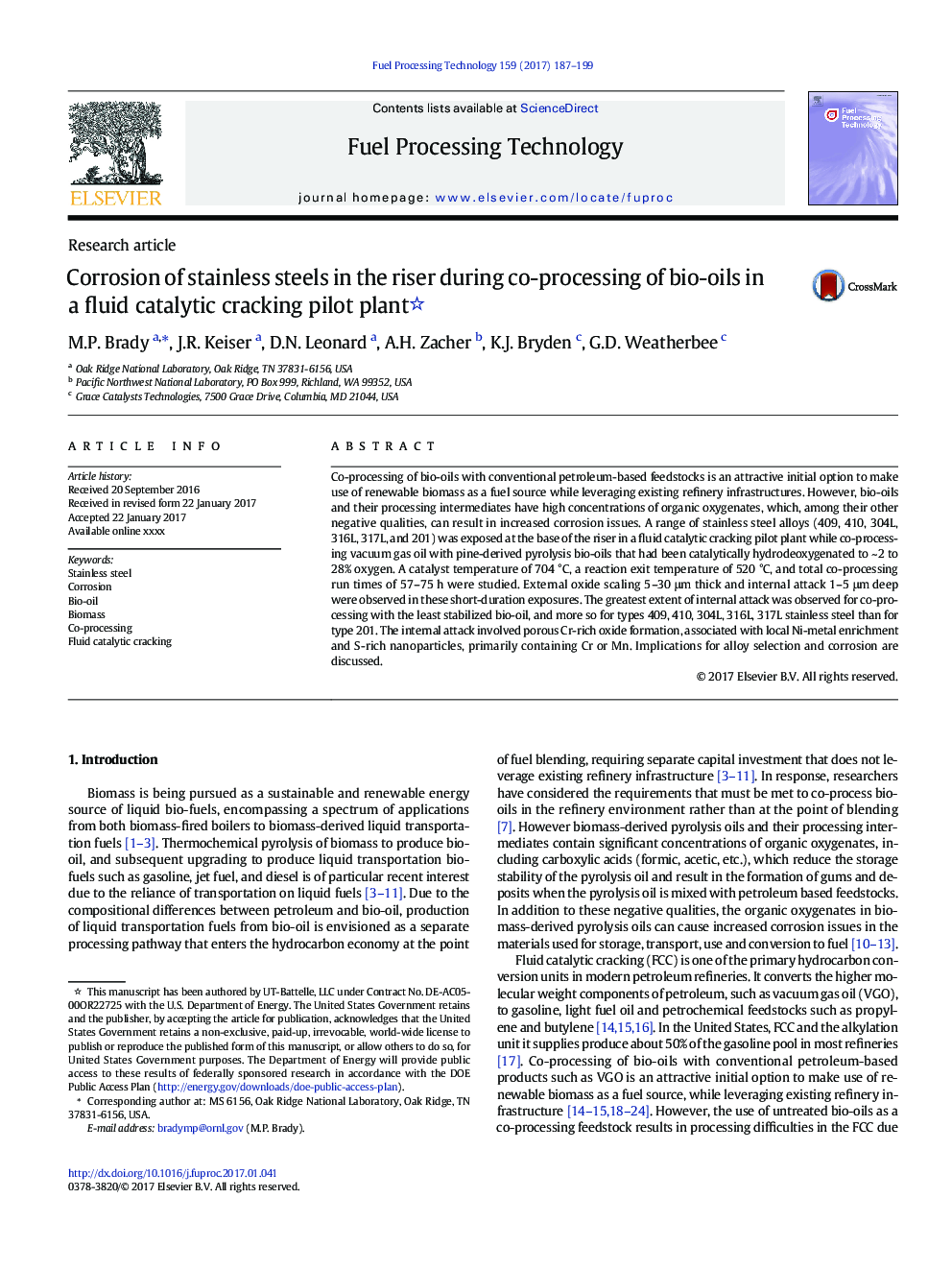| کد مقاله | کد نشریه | سال انتشار | مقاله انگلیسی | نسخه تمام متن |
|---|---|---|---|---|
| 4914357 | 1425387 | 2017 | 13 صفحه PDF | دانلود رایگان |
عنوان انگلیسی مقاله ISI
Corrosion of stainless steels in the riser during co-processing of bio-oils in a fluid catalytic cracking pilot plant
ترجمه فارسی عنوان
خوردگی فولاد ضد زنگ در روده در طول همکاری پردازش روغن های زیستی در یک خلبان کارخانه ترک خوردگی کاتالیست مایع
دانلود مقاله + سفارش ترجمه
دانلود مقاله ISI انگلیسی
رایگان برای ایرانیان
کلمات کلیدی
فولاد ضد زنگ، خوردگی، روغن زیتون، زیست توده، همکاری پردازش، ترک خوردگی کاتالیزور مایع،
موضوعات مرتبط
مهندسی و علوم پایه
مهندسی شیمی
مهندسی شیمی (عمومی)
چکیده انگلیسی
Co-processing of bio-oils with conventional petroleum-based feedstocks is an attractive initial option to make use of renewable biomass as a fuel source while leveraging existing refinery infrastructures. However, bio-oils and their processing intermediates have high concentrations of organic oxygenates, which, among their other negative qualities, can result in increased corrosion issues. A range of stainless steel alloys (409, 410, 304L, 316L, 317L, and 201) was exposed at the base of the riser in a fluid catalytic cracking pilot plant while co-processing vacuum gas oil with pine-derived pyrolysis bio-oils that had been catalytically hydrodeoxygenated to ~ 2 to 28% oxygen. A catalyst temperature of 704 °C, a reaction exit temperature of 520 °C, and total co-processing run times of 57-75 h were studied. External oxide scaling 5-30 μm thick and internal attack 1-5 μm deep were observed in these short-duration exposures. The greatest extent of internal attack was observed for co-processing with the least stabilized bio-oil, and more so for types 409, 410, 304L, 316L, 317L stainless steel than for type 201. The internal attack involved porous Cr-rich oxide formation, associated with local Ni-metal enrichment and S-rich nanoparticles, primarily containing Cr or Mn. Implications for alloy selection and corrosion are discussed.
ناشر
Database: Elsevier - ScienceDirect (ساینس دایرکت)
Journal: Fuel Processing Technology - Volume 159, May 2017, Pages 187-199
Journal: Fuel Processing Technology - Volume 159, May 2017, Pages 187-199
نویسندگان
M.P. Brady, J.R. Keiser, D.N. Leonard, A.H. Zacher, K.J. Bryden, G.D. Weatherbee,
